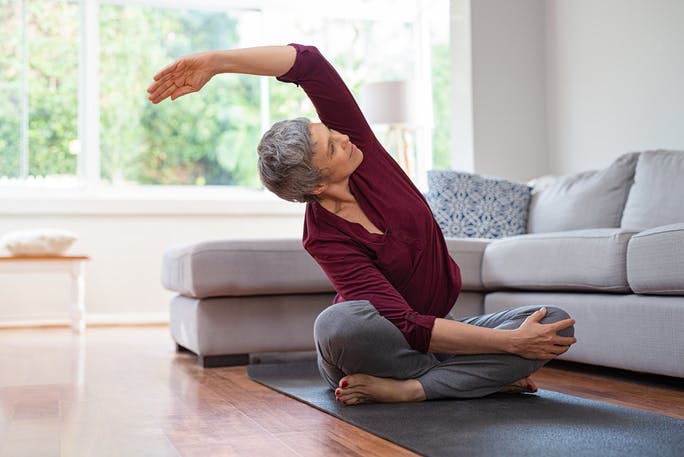Natural Ways to Improve Circulation

Your circulatory system is made up of blood vessels and muscles that help to control the flow of blood throughout your body. This process is called—you guessed it—circulation. By carrying oxygen and nutrients to your cells and helping get rid of waste and carbon dioxide, it’s safe to say the circulatory system plays an important role in your overall health.[1]
We depend on our blood to keep us healthy and keep our bodies functioning. If our blood circulation is poor, we’re likely to experience negative symptoms. Follow along with Centrum as we discuss the signs of poor circulation and how you may improve it.
Signs of Poor Circulation
Some symptoms of poor circulation are easy to spot as long as you know what to look for. Common symptoms of poor circulation include:
- Red, purple, blue, or white toes
- Unexplained hair loss on legs and feet
- Hands and feet often excessively cool
- Feet fall asleep easily[2]
As always, it’s important to consult your healthcare provider if you’re experiencing symptoms of poor circulation.
Natural Ways to Improve Circulation
There are many lifestyle changes you can make to help improve your circulation. These include:
- Exercise. Regular exercise is known to boost circulation. Whether you choose to take a walk, ride your bike, run, or go for a swim, exercising regularly can help keep your blood pumping and improve cardiovascular health.[3]
- Stretch. In addition to exercise, make sure you’re stretching. Along with reducing your chance of cramps and muscle strains, stretching can help improve circulation throughout the whole body.[4]
- Get a massage. Massages can help improve general blood flow, as well as alleviate muscle soreness after a tough workout.[5]
- Drink water. Staying hydrated throughout the day will help boost the oxygen levels in your blood and lead to better circulation.[5]
- Eat a healthy, well-balanced diet. Avoid consuming foods high in sodium, which can affect blood pressure.[6] Instead, focus on eating lean protein, whole grains and fresh produce rich in antioxidants.
- Soothe your stress. Stress and anxiety can affect your circulation, causing reduced blood flow to the heart.[7] Consider exercise, meditation or hobbies as ways to manage stress.
- Pour a cup of tea. Including green tea in your diet can help support healthy circulation. Consuming green tea has been linked to improved cardiovascular health.[8]
- Incorporate flavonoids into your diet. Found in high levels in foods like cocoa and tea, flavonoids have been shown to help blood vessels to dilate, boosting circulation.[8]
- Live a healthy lifestyle. Healthy lifestyle habits can help support blood circulation. Avoid cigarettes, which can negatively affect blood circulation,[9] and if you choose to drink alcohol, drink moderately.[10] Lastly, be sure to get a good night’s rest, as healthy sleep habits are associated with a lower risk of blood pressure.[11]
- Practice oral hygiene. Studies have shown a link between poor oral health, such as gum disease or tooth loss, and higher rates of cardiovascular problems.[12][13] Brush and floss your teeth twice daily to maintain good oral hygiene.[13]
Circulation is vital to the overall health of your entire body. If your circulation is of concern, be sure to talk to your health care provider and give these natural ways to improve circulation a try.










